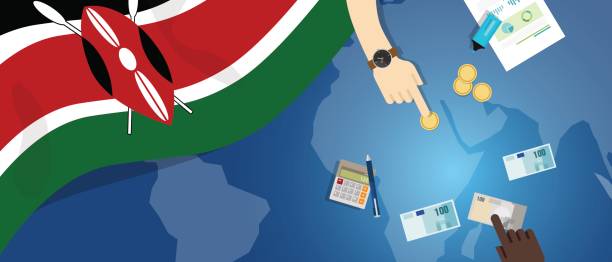How Kenya’s Digital Currency Dabble Stacks Up Against M-Pesa Hegemony

Since its announcement by the Central Bank of Kenya (CBK) weeks ago, the proposed national digital currency for Kenya, which is still under public discussion, has been tentatively talked up as a possible much-needed competitor to the overwhelmingly dominant mobile money platform in Kenya, M-Pesa, owing to the possibility of lower fees with the digital currency.
M-Pesa, powered by Kenya’s largest telco, Safaricom, – is by far the leading mobile money platform in the country, accounting for 99.9 percent of the country’s mobile money market.
However, despite its popularity, transactions on the M-Pesa platform remain quite expensive – objectively one of the costliest around; with the fee for a KES 1 K (~USD 9.00) transfer costing as much as KES 12.00 (10 cents) in fees. For context, that’s four times more than what it costs to do a similar transaction of the equivalent amount in Nigeria.
While some have put the high fees down to the lack of competition in the space and the stranglehold of Safaricom, others have clamoured for newer, cheaper options – and the newly proposed digital currency seemed like a good option. However, analysts reckon Kenya’s Central Bank Digital Currency (CBDC) is unlikely to unsettle M-Pesa.
While arguing that the ubiquitous mobile money platform is likely to retain its competitive advantage, analysts at the investment bank, EFG Hermes, said that the CBDC is unlikely to achieve wide adoption since it needs a smartphone app to operate, echoing sentiments made by CBK governor, Dr Patrick Njoroge, earlier last week.
As Business Daily Africa reported, there’s little reason to imagine that the CBDC would affect M-Pesa’s business at this time. While M-Pesa also has an app, it can run on feature phones without requiring an internet connection. Safaricom has also expanded the product to offer a wide variety of financial services, including merchant and bill payments, business cash transfers, remittances, and bank to wallet transfers.
“M-Pesa will still have a competitive advantage in terms of a captive market as well distribution aspect as well, where it has over 258,000 agents ensuring that the service is accessible to a large proportion of the population,” said Silha Rasugu, EFG Hermes associate vice president—utilities, telecom, oil, and gas.
The CBK governor, in last week’s interview, identified the lack of access to smartphones by more than half of mobile users in the country as one of the biggest stumbling blocks to the rollout of the CBDC.
Dr Njoroge said the fact that the digital currency will run on 4G-enabled smartphones would hurt Kenya’s financial inclusion and effectively lock out half of the population from transacting in it.
Official data shows that 33 million or 56 percent of the 59 million cell phone devices in use in the country are feature phones, meaning it will be difficult for half of the subscribers to transact using CBDC.
M-Pesa, on the other hand, has gained widespread usage and acceptance since it was rolled out in 2007 and now boasts over 35 million customers in Kenya.
M-Pesa’s existing extensive physical agent network, which seems to have spanned the length and breadth of the country, also seems like another advantage. In 2021, mobile money agents transacted KES 6.8 T (~USD 59 B), a 31.7 percent jump from KES 5.2 T (~USD 45 B) a year earlier, translating to KES 18.63 B (~USD 162 M) transacted per day.
The existence of the aforementioned advantages would likely keep M-Pesa unaffected by the introduction of the digital shilling in Kenya, at least for the foreseeable future. However, smartphone penetration which is tipped to grow significantly in the medium term, could introduce an interesting dynamic.
Driven by falling costs of devices and the availability of consumer credit seeking to enable people to buy higher-end gadgets, including newer, exciting services like Badili, an expected surge in smartphone usage would have interesting ramifications for Kenya’s CBDC plan and perhaps the present Safaricom-led mobile money hegemony. But the fact that Safaricom is partly owned by the Kenyan government is likely to somewhat insulate the telco.
Featured Image Courtesy: iStock